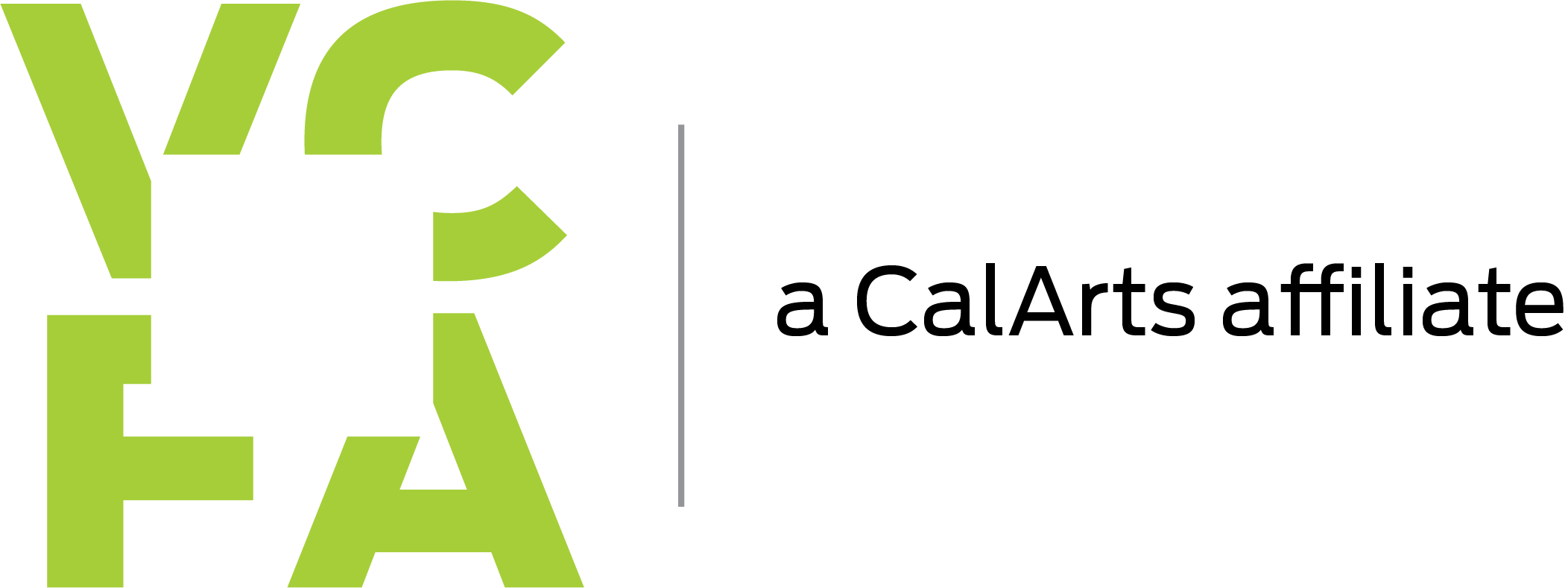Center Fellowships
Learn more about the Center's fellowship program and this year's fellows working at the intersection of art and social justice.
ABOUT THE FELLOWSHIPS
Center for Arts + Social Justice Fellowship Grant
The Center for Arts + Social Justice Fellowship Grant is a $2,000 one-time award, available annually to one student in each program to support work and/or practice at the juncture of arts and social justice. The Center for Arts + Social Justice Fellowship Grant was created to provide support for students whose work shows a commitment to social justice, to celebrate and highlight that work, and to create a networking opportunity for recipients.
Applicants must be currently enrolled and in good academic standing. Application information for 2022 coming soon!
Center for Arts + Social Justice Thesis Fellowship Grant
The Center for Arts + Social Justice Thesis Fellowship Grant is a $5,000 grant awarded to 2 students annually to support thesis work focused on a social justice issue. In recognition of the Center’s mission, priority will be given to projects that seek to create community-based change through the arts, and/or show the potential for future community impact.
In addition to monetary support, recipients will be featured on the Center for Arts + Social Justice webpage and will join a network of Center for Arts & Social Justice Thesis Fellows who will present a talk about their work to a college-wide audience each year.
Applicants must be currently enrolled and in good academic standing. Applicants must be in the third or fourth semester of their program and be able to clearly articulate the details of their thesis project. Application information for 2022 coming soon!
2022 Thesis Fellows
The Center for Arts + Social Justice Thesis Fellowship Grant is a $5,000 grant awarded to 2 students annually to support thesis work focused on a social justice issue.
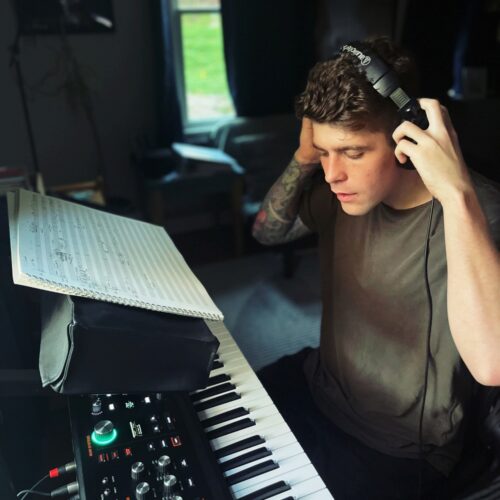 Christopher Cobley (MC ’23)
Christopher Cobley (MC ’23)
In the 21st century United States, suicide remains the second leading cause of death from ages 10 to 40. Tangible change regarding the understanding and treatment of mental health requires a shift in cultural perception, divorced from the highly polarized political landscape. This project intends to target commonalities and shared idiosyncrasies within the human experience—not only between those who endure the extremities of mental illness, but also those who scarcely engage with such topics. The aim is to develop methodologies in distancing a work’s aesthetic experience from its thematic tone. Proposed as “Audile-Narrative Dissonance,” the concept seeks to accessibly frame challenging subjects by tactfully diminishing the immediacy of their complexity.
The underlying principle of this thesis concerns how art can affect change in others. As a composer, you enter a concert hall having already “performed” your work. The creative twists and contortions illustrate a map of intention—a testimony to the belief that you have something meaningful to share. An artist may thematically traverse the extremes of their reality (a “method-writing’”of sorts). However, to encourage “method-listening” from an audience, we might refrain from imposing our meaning prescriptively—and rather, evoke a canvas on which an individual’s reality can be validated through self-discovery.
Chris will be posting regular blog updates regarding his creative pursuits, including his fellowship experience. Updates can be found on his personal website later this year: christophercobley.com
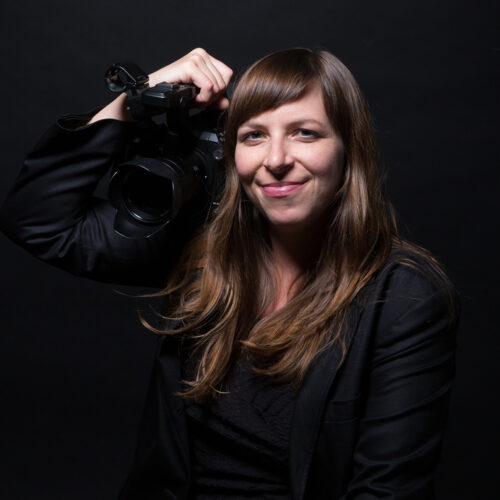 Jen Gilomen (F’23)
Jen Gilomen (F’23)
BORN FOR THIS is a documentary film following one family as they plan and hope for a home birth. Determined not to become another statistic of the Black maternal health crisis, Janeé Washington and her husband Josh choose the rare option of hiring an experienced midwife and doula and planning to give birth at home, away from the hospital and all of its interventions. But the baby has other plans, and despite all of the team’s efforts, they end up transferring to the hospital at the eleventh hour. This is the story of the birth of one baby, with its family caught between two very different approaches to childbirth. The film will be one component of a larger project exploring different aspects of maternal healthcare; it includes Jen’s feature documentary DELIVERING JUSTICE, which follows midwife Tanya Smith-Johnson as she works to make midwifery more accessible to her community, and a planned podcast series in collaboration with the pioneering Reproductive Justice organization Black Women Birthing Justice.
2022 Fellows
The Center for Arts + Social Justice Fellowship Grant is a $2,000 one-time award, available annually to one student in each program to support work and/or practice at the juncture of arts and social justice.
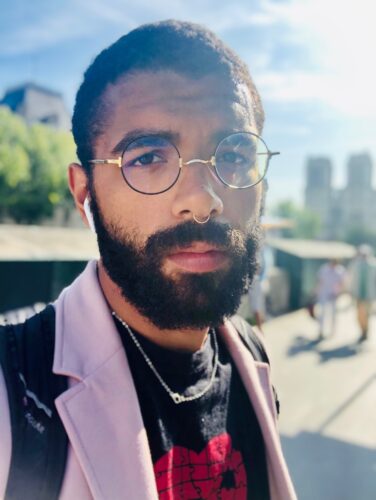 Ty Chapman (WCYA ’24)
Ty Chapman (WCYA ’24)
Hero of the Glade (working title), is a middle grade fantasy novel deeply rooted in environmentalism. Taking inspiration from a lengthy history of portal narratives, and terrific fantasy novels by Black authors, this work follows a Black boy named Terrence, from Minneapolis, who makes unexpected discoveries about himself while exploring, and protecting, a strange land. The Glade is home to all manner of strange creatures, though, most of them are displaced due to the machinations of a malevolent force. The embodiment of industrialism and eurocentrism, this force seeks single-mindedly to expand, produce, and colonize. Terrence must lean on his family’s legacy of guardianship, and stand in solidarity with The Glade’s different peoples, to thwart those that would strip the land of its magic. Of course, Terrence must balance this act of resistance with family matters and what it means to be a good friend. Easy, right?
Mentor texts include: The Edge Chronicles, Race to the Sun, The Spiderwick Chronicles, Tristan Strong Punches a Hole in the Sky, and more.
Links:
Twitter: @TyChapMN
Instagram: @Ty_ChapMN
Website: tychapman.org
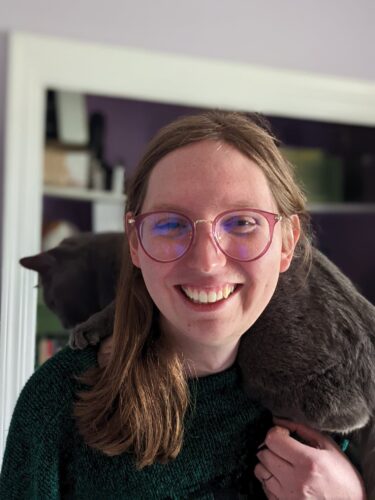 Callie Newsom Doyle (F ’24)
Callie Newsom Doyle (F ’24)
EXHALE is a series of four short films that center around my mental state during each season. Designed as an installation piece, viewers will move around a room to view all four shorts, changing space as the season changes. Each short has a drastically different tone and covers my emotional arc over an entire year. The main themes of the piece are mental health, trauma, and acceptance.
Spring is a time when I feel relaxed and calm. To replicate that, I decided to shoot a hyperrealist story about a man who goes on a camping trip. In Spring, the main character builds a fire, goes for a hike and then rests at a body of water. It is a meditative piece that invites the viewer in and makes them feel at ease.
The sexual trauma that I experienced occurred during the summer which means that Summer is a very dark film. It takes the form of four monologues delivered directly to the audience. All four monologues are delivered outside, next to a park bench. The monologues tackle some of the mental health issues that I struggle with namely: anxiety disorders, insomnia, and PTSD.
Directly responding to summer, fall is a very fearful time in my life. During that time, I become very insular and easily panicked. To capture that panic, Fall is about a nonbinary person returning to a house that is the source of an unspoken trauma. While there, they cook, take care of a dog, and have a panic attack. Instead of exploiting that trauma, I focus on the tools that are used to find respite from the panic attack with zero judgement.
Winter is a time of healing and acceptance for me. Winter focuses on my identity as a transwoman and celebrates my journey towards acceptance of self. This short takes the the form of an abstract piece. The film follows a transwoman who finds herself standing in a series of increasingly large bodies of water while unburdening herself of the weight of masculinity.
Sixty six percent of trans people will experience sexual trauma. That number is too high, and isn’t talked about enough because trans people are aggressively marginalized. My goal with this project is to create a space where people can discuss these heavy topics with zero judgement and in a non-exploitative manner. Trans people exist, and their trauma is very real, and it should be talked about, but it also isn’t the only part of our identity. The Four Seasons captures the high and low arcs that I go through in a year and encapsulates what one specific trans person experiences while also opening the door for other trans people to discuss what their experience looks like.
Currently, I am half way through shooting this project, and I am nearing the completion of the scripts for Fall and Winter. I hope to shoot Fall during late November/early December of this year at a house in the Pacific Northwest. Then shortly after that, I will shoot Winter around Northwest Arkansas and Austin, Texas. This grant will heavily aid me in the production of Fall and Winter. Without these funds, working with the cast and crew I wish to work with in the locations that I need to shoot in will become increasingly difficult.
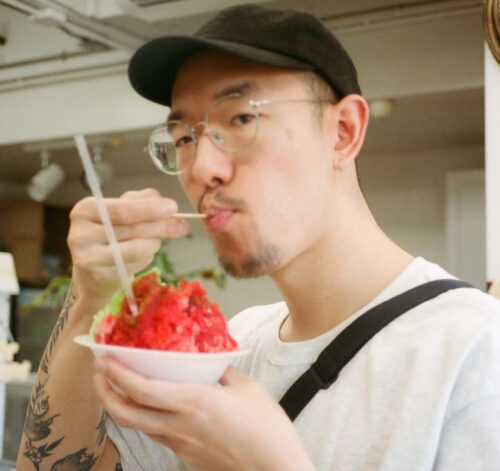 Ray Masaki (GD ’23)
Ray Masaki (GD ’23)
My thesis project examines ideas of perfectionism in the design industry, and how it can lead to burnout and contribute to cultural elitism. My thinking is that perfectionism tends to favor and encourage accepted and lionized forms of expression, which perpetuates what is considered the standard, and marginalizes under-represented forms of expression. Through interviews with other design practitioners and those outside of the industry as well as personal case studies, I’m hoping to find strategies to make my design practice more accepting and inclusive, while also sharing potential approaches to others as well.
Website: r-m.work
Instagram: instagram.com/ray_masaki/
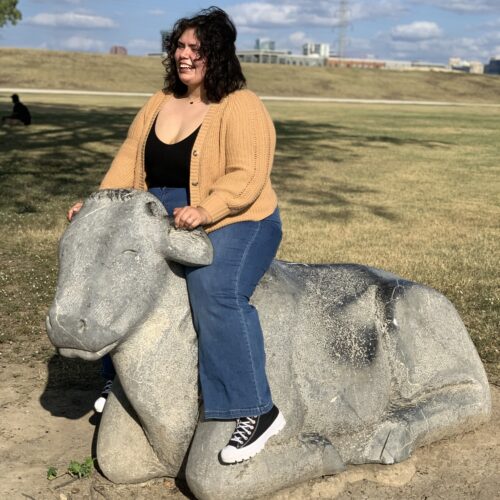 Vanessa Miranda (VA ’23)
Vanessa Miranda (VA ’23)
The project “Ver La Raza” (See the People) aims to begin conversations with the Chicano community in Clovis, New Mexico. These conversations will pertain to the current climate of The City of Clovis. These conversations’ purpose is to discuss what changes the community would like to see implemented in order to better the people. In order to conduct these conversations, there will be several events held where free food will be served and past work I have created will be shown. The project’s first event will be held at the local Lighthouse Mission in Clovis. The meal that will be prepared for these events is Mole, a traditional Mexican meal consisting of a sauce served on top of meat and rice. Mole typically takes several hours to prepare and is a meal that is associated with care and love. Through these events, video/audio will be collected which will later be projected on several quilts of Papel Picados. After the work is shown at VCFA, it will then be shown in a non-traditional gallery space in hopes that it will provoke further dialogue about changes that need to be made within the city.
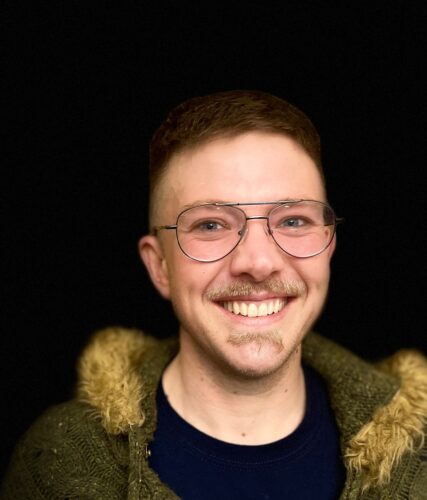 Ethan Sudan (MC ’23)
Ethan Sudan (MC ’23)
I am in the beginning stages of a composition ‘remembrance’ piece inspired by and dedicated to Fern Feather, a trans individual who was murdered near Montpelier, VT this past spring—a tragedy that was heartbreaking and shook many of us in my circle of friends. I remember attending my first Trans Day of Remembrance vigil in the early 2000’s as a young undergrad student in Atlanta, having just come out as transgender myself. It was so sad and devastating to hear name after name read of all the trans people who had been killed in the previous year—too many names. And year after year, more and more. And so while this piece will be dedicated to Fern, it will also be an honoring of too many who have been victims of violence and hatred. I find the process of creation and unfolding of the music to be a healing outlet and can only aspire that others may find healing in the listening, singing, or playing of it as well raising awareness. I wish to share this composition in particular at a future Trans Day of Remembrance vigil (honored on November 20th) and at a future gathering to remember Fern.
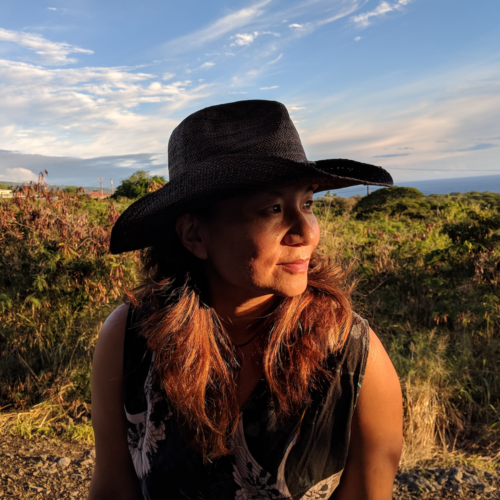 LiAnne Yu (W ’24)
LiAnne Yu (W ’24)
I am honored to accept the Center for Arts + Social Justice Fellowship, which will support my novel, Chasing Margaret Mead. My book explores the power dynamics within academia in terms of who gets to tell whose stories and who has the “authority” to define how other cultures are portrayed. My characters are two Asian American anthropology students encountering the pitfalls of being “token” students of color in a discipline dominated by white, male, heterosexual perspectives. As an anthropologist myself, I’ve always struggled with the dark side of academia—the racialized undertones that become apparent when we interrogate the identities of authors vs. subjects. I hope that as an artist-writer, I can create more opportunities for reflection, conversation, and ultimately positive change towards more socially just forms of cultural representation. While this novel is my primary project, my other writing is inspired by similar themes. My personal essays on growing up with immigrant parents have been featured in The New York Times and The Seventh Wave. This fall, my poems about voicing what we keep silent within the Asian American community will be published in the literary journal F(r)iction. Visit: lianneyu.com
2021 Thesis Fellows
The Center for Arts + Social Justice Thesis Fellowship Grant is a $5,000 grant awarded to 2 students annually to support thesis work focused on a social justice issue.
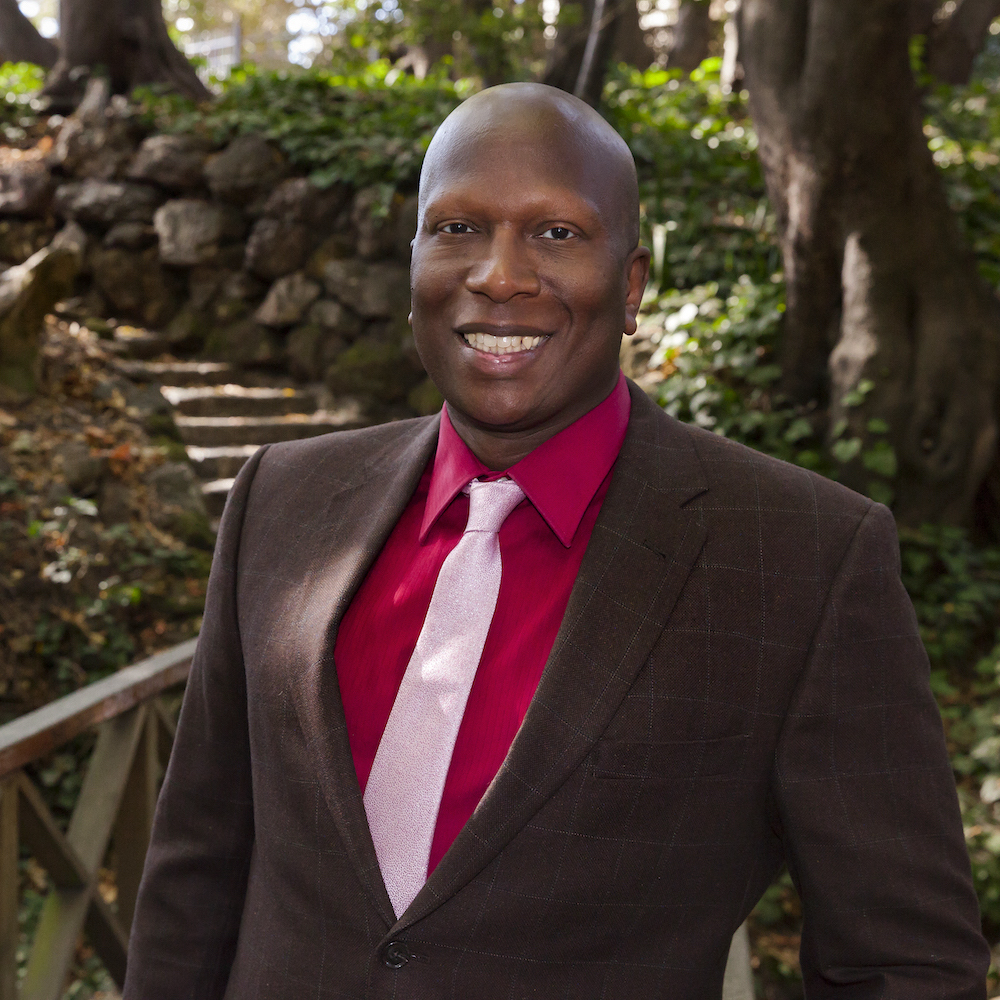 Brad Bailey (F ’22)
Brad Bailey (F ’22)
“Marlon Riggs was one of the most prolific documentary filmmakers of the late 20th century. His films, including TONGUES UNTIED (1989), were a bold and bracing look into the peak of the AIDS Crisis and other challenges for people of color during the late 1980s and early 1990s. His work was controversial and became a lightning rod for the culture wars of that era. My film will look at the legacy of that work and will also assess its relevance for today’s America.”
Brad Bailey is originally from Moultrie, Georgia. Brad is an avid fan of telling stories, especially those from underexposed communities. His film HALE won the Student Academy Award in 2017.
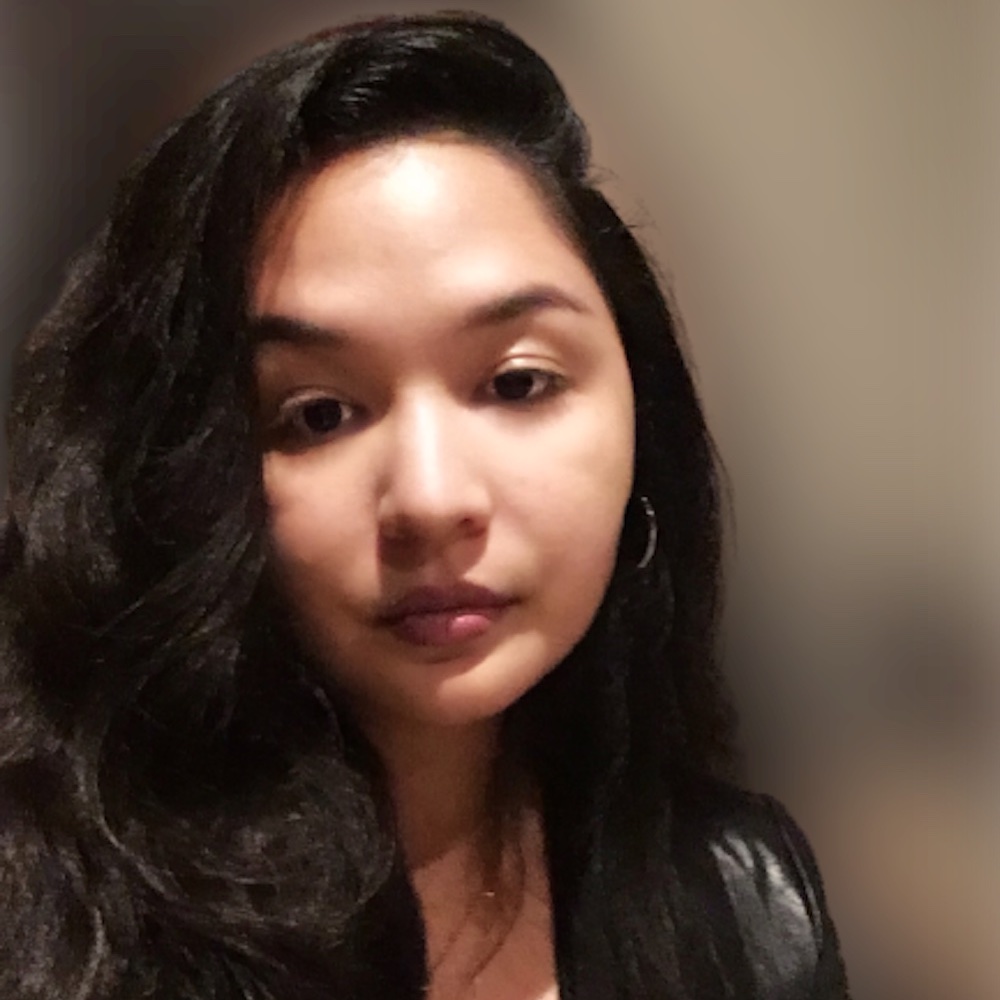 Juliet Way-Henthorne (W ’22)
Juliet Way-Henthorne (W ’22)
“My critical thesis explores biracial Asian-American memoirs as I seek to uncover patterns in narrative structure, endings that aren’t happy or resolution-based—but rather, reflective, emotional, or focused on moments of self-acceptance—and, perhaps most interestingly, understand why these biracial Asian-American memoirs, of which there is no shortage, rarely make it to mainstream audiences. I examine these memoirs in the context of the history of violence towards Asian-Americans—a history that is too often overlooked or under-taught. I further examine and propose ways in which this community of doubly-othered individuals can enhance their voices and occupy a larger space within society. The biracial Asian-American experience, like other biracial experiences, is buried in shadows, its secrets often known only by those who live them. We straddle a border, often filled with shame and a deep, profound sense of being devoid of an identity. We are broken halves with no hope of mending if we cannot find each other. Therefore, I consider this—writing about biraciality and drawing awareness to experiences that are rarely discussed in major spaces—to be a life’s work, with the goal of helping other biracial people form senses of identity and community that they may not have even known were missing.”
2021 Fellows
The Center for Arts + Social Justice Fellowship Grant is a $2,000 one-time award, available annually to one student in each program to support work and/or practice at the juncture of arts and social justice.
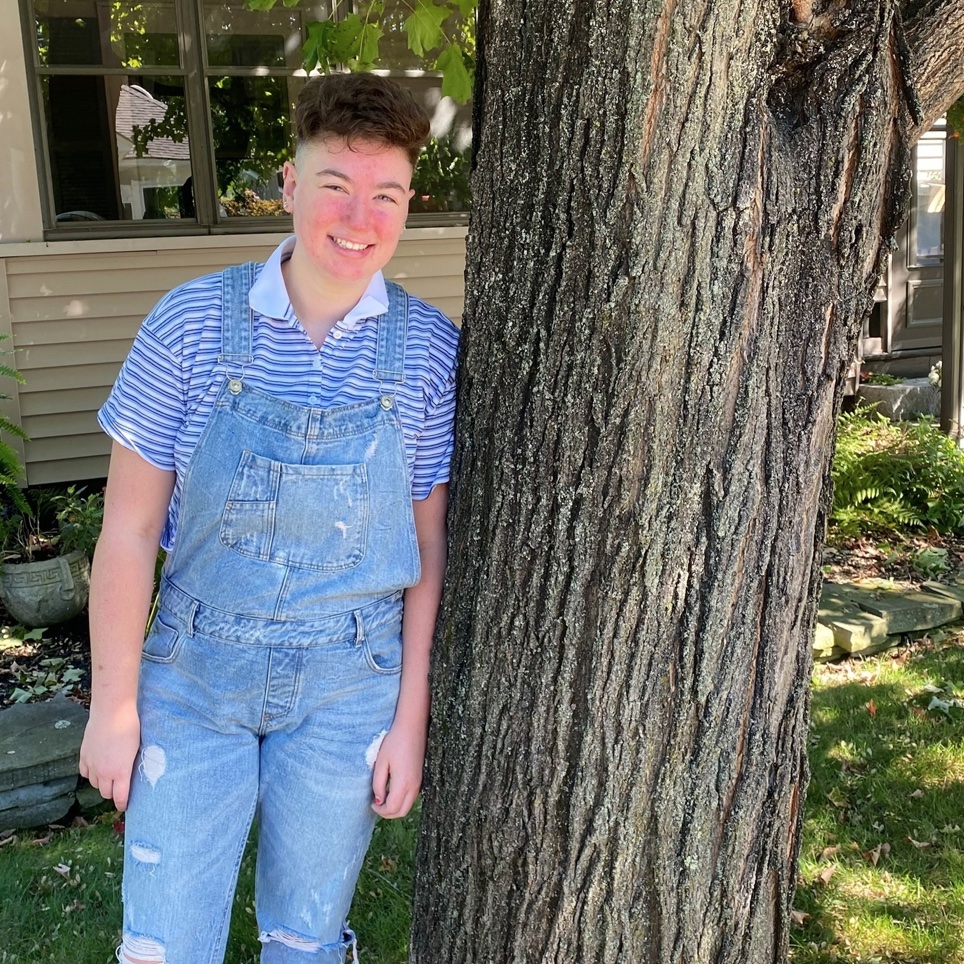 Leah Byck (VA ’22)
Leah Byck (VA ’22)
“Hi! I am Leah Byck (Leah/They) [Lee-ah]. This fellowship grant will support my third semester’s work on disability justice in the VCFA Visual Art program. This semester, I am working on a film about hidden disabilities and mental illness, will be performing a drag show about mental illness, and will be painting a few paintings about disability. This grant will not only help support material costs, but will help production of these projects and the overall amount of time that will go into these pieces. My focus this semester is on disability justice, but this topic also relates to any social justice movement. My work is overall about social justice and intersectional subject matter. Once an individual starts talking about disability justice, one will start to also talk about racial justice, gender, sexuality, white supremacy, patriarchy, and colonialism. This grant will go towards my semester’s topic of disability justice, which will then inform my work from the past and moving forward will inform my other projects in the future.”
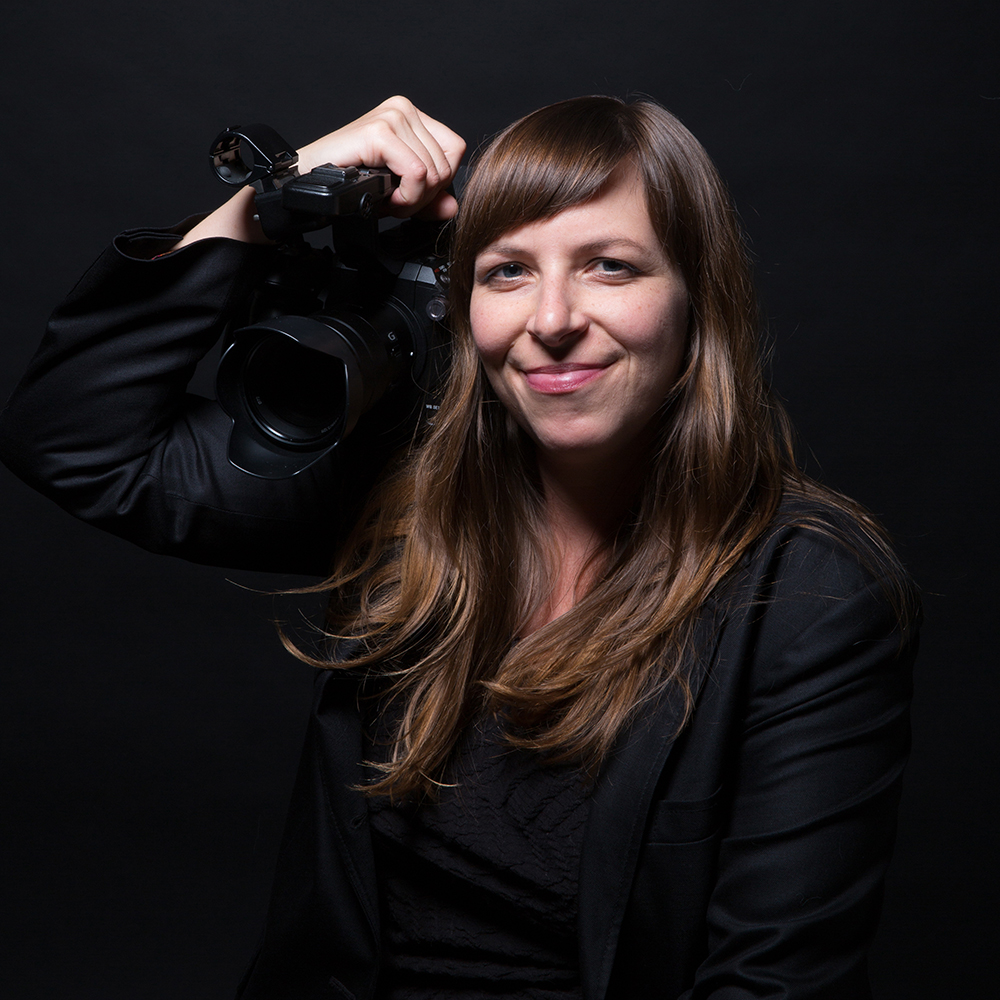 Jen Gilomen (F ’23)
Jen Gilomen (F ’23)
In December 2018, filmmaker Jen Gilomen nearly died in childbirth. After her traumatic experience, she learned how unnecessarily common it was, and how much worse it could have been without her many privileges. DELIVERING JUSTICE: A MOVEMENT IS BORN will follow Jen’s journey to understand why the maternal death rate continues to rise in the United States, even as it diminishes in other wealthy nations, and to see who is on the front lines of efforts to reverse the trend. With racism, inequality, and the pandemic exacerbating an already broken system, the quest will take us deep within the complex world of childbirth in the United States as midwives, mothers, Congresswomen, and researchers battle to make childbirth safer and more equitable for all birthing people. www.deliveringjusticefilm.com
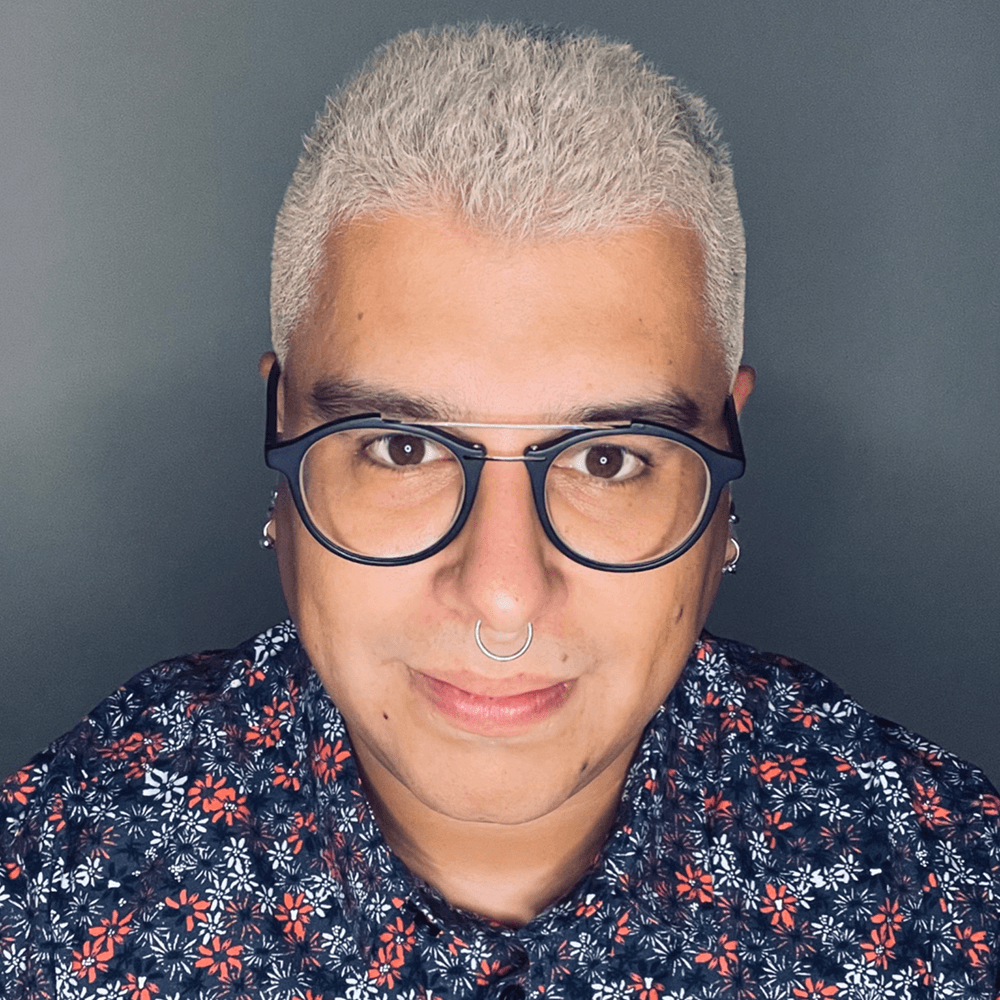 Vic Rodriguez Tang (GD ’22)
Vic Rodriguez Tang (GD ’22)
“My goal is to create the first brand that acknowledges four specific target audiences: trans, queer, non-binary, and gender-nonconforming folks that typically get ignored in the menstrual products industry as consumers. As part of creating this brand and company, my ultimate goal is to get into sales points such as drug stores and grocery stores (accessible points of sale) with a line of products that can compete with established brands’ prices in this industry. I want to make sure we cater to trans, queer, non-binary, and gender-nonconforming folks first, which no company does in markets such as convenience stores. I want the brand to compete with the prices of big brands while offering high-quality products. As part of this initiative, I want to help these four groups by providing jobs in a company that acknowledges, celebrates, and supports them on multiple levels. Lastly, as part of this project, this brand aims to give back to the community by offering scholarships for gender confirmation needs from these communities.”
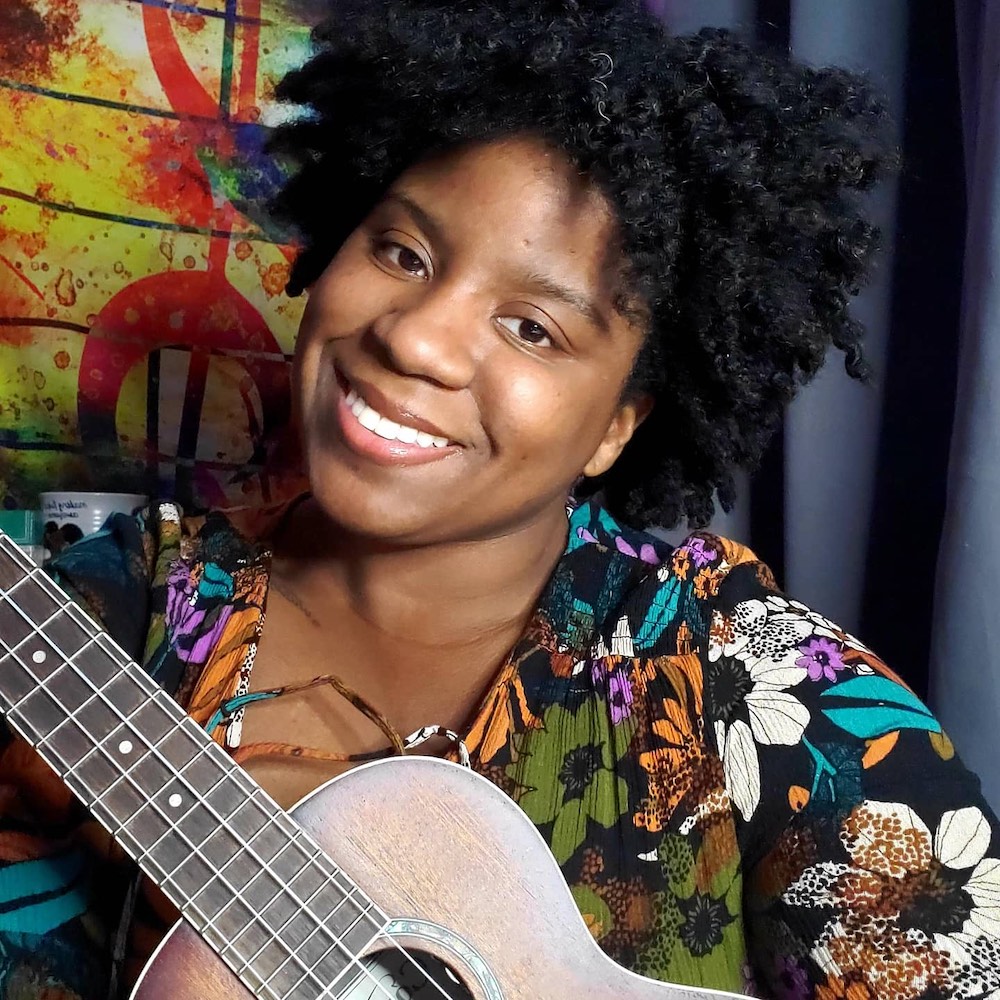 Jaquay Smith (MC ’22)
Jaquay Smith (MC ’22)
“I created Music Matters with JAQ during the pandemic to give children a place to go to watch free videos. We focus on music education for children, and it is our mission to bring access to those who would otherwise receive lesser education. Music Matters with JAQ offers free shows and videos, helps to fill the need for supplemental music lessons (due to the decline of the arts in schools and an increase in e-learning), and provides private lessons for homeschooled children and other budding musicians. We create free videos spotlighting BIPOC children and adults that feature musical terms and ideas in an imaginative way. We also offer music lessons to homeschooled children. A lot of children have not seen or touched instruments. For many, musicians and orchestras seem out of reach; musicals are played on TV; choirs are only heard in church; and a career as a musician or a composer is unheard of. But I want to show children that it is possible to love and make music.” www.musicmatterswithjaq.com
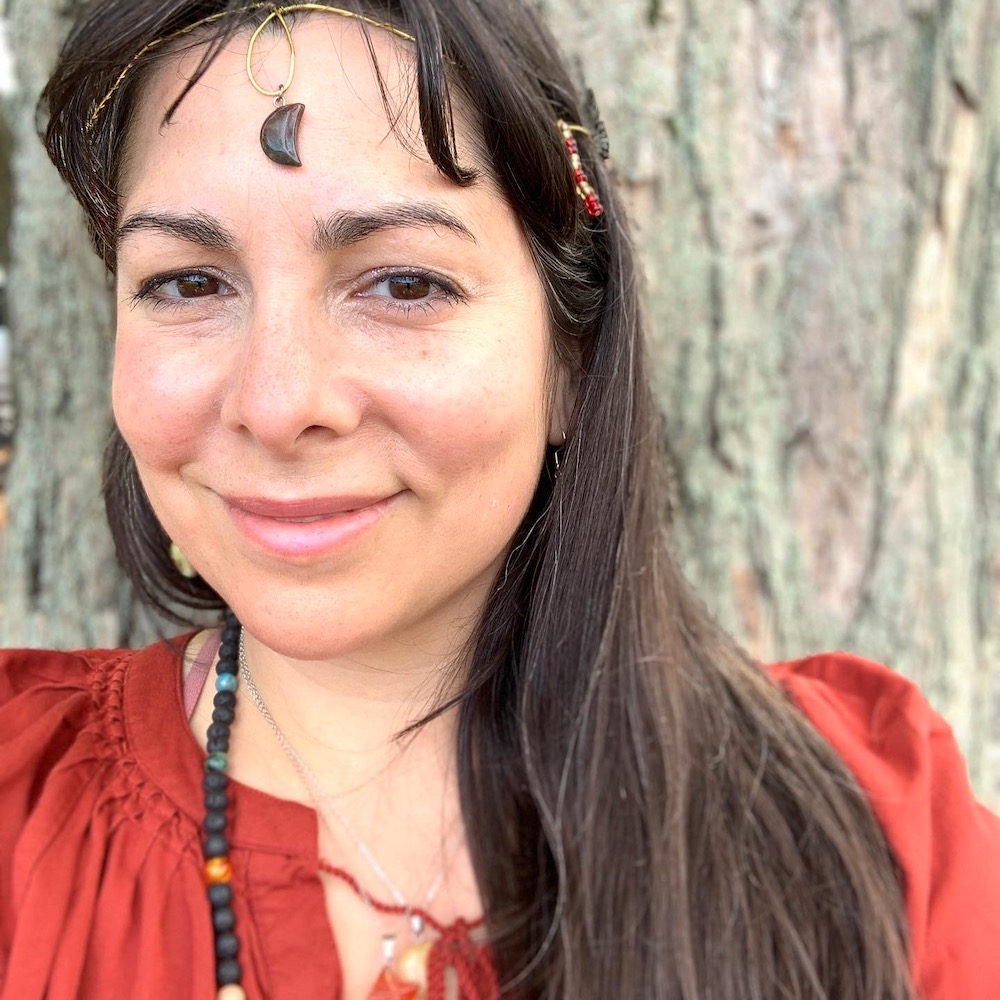 Diana Norma Szokolyai (W ’22)
Diana Norma Szokolyai (W ’22)
“I am honored to accept the Center for Arts + Social Justice Fellowship, which will support my book of Romani poetry in translation. I am a first-generation American of Romani Hungarian heritage, and I am translating the work of Romani poets such as Alexandre Romanès, Magda Szécsi, and Bronislawa Wajs (a.k.a. Papusza), many of whom have not yet been translated into English. Poetry can be a powerful vehicle to bear witness to authentic Romani stories that need to be told. History gives us evidence for the forced exodus of Roma from India, 500+ years of Romani slavery, and the Porajmos (genocide of Roma during WWII). Today, many Romani people are disenfranchised and continue to suffer from systemic and targeted racism. Meanwhile, the ‘G*psy’ image in pop culture has largely been written by non-Roma. Romani scholar Ian Hancock writes about how this is problematic and has resulted in the emergence of a fictitious ‘G*psy’ stereotype. Even in the face of oppression, the Romani people have remained resilient and have a vibrant and rich culture with a shared language and traditions that have endured centuries. Reading Romani poetry in translation is invaluable to our development of more multi-faceted perspectives and part of the work of anti-bias education. Personally, I agree with Edith Grossman’s assessment in her book Why Translation Matters, that ‘Translation always helps us to know, to see from a different angle, to attribute new value to what once may have been unfamiliar. As nations and as individuals, we have a critical need for that understanding and insight. The alternative is unthinkable.'” www.diananorma.com | Twitter: @DNSwrites | Instagram: @DianaNormaWrites
